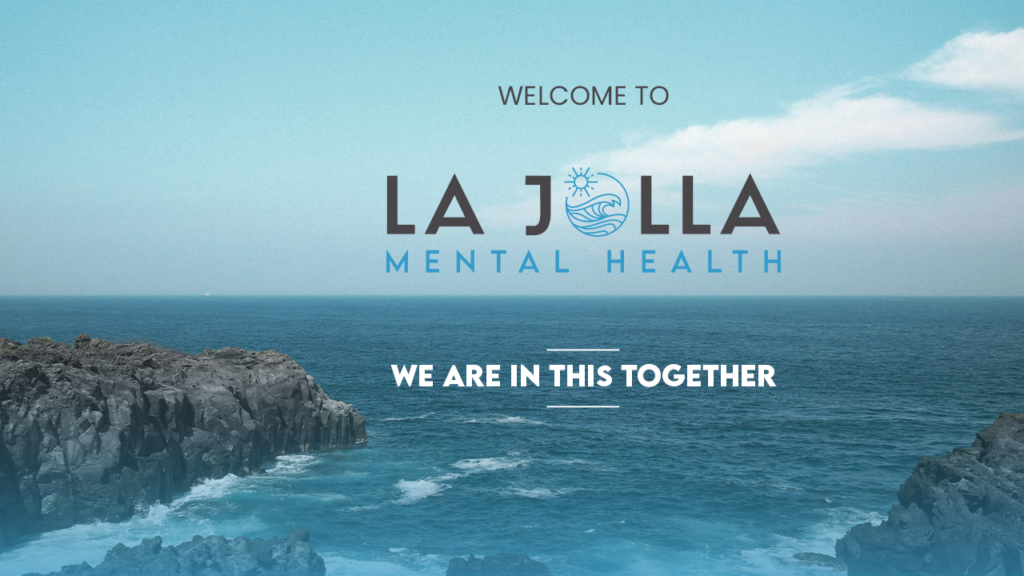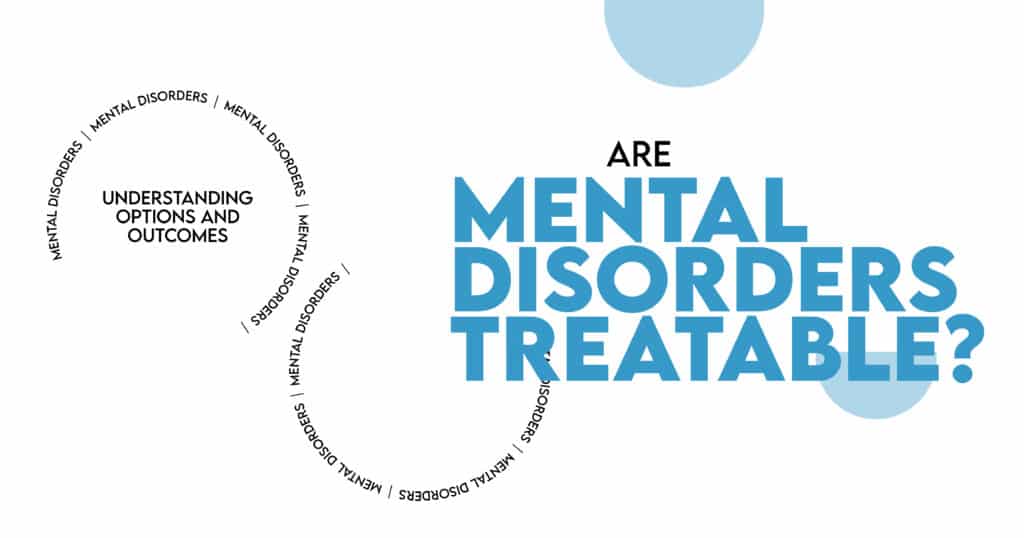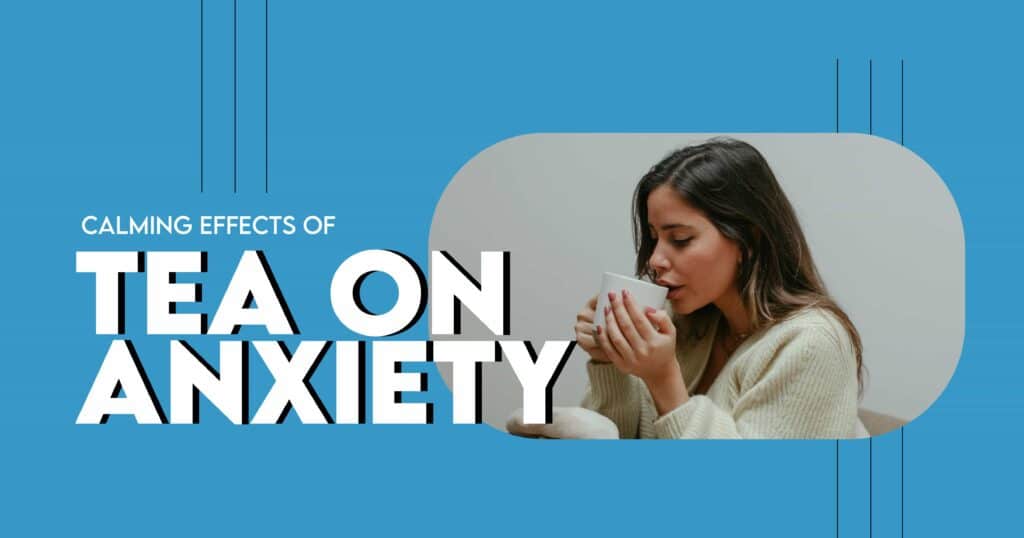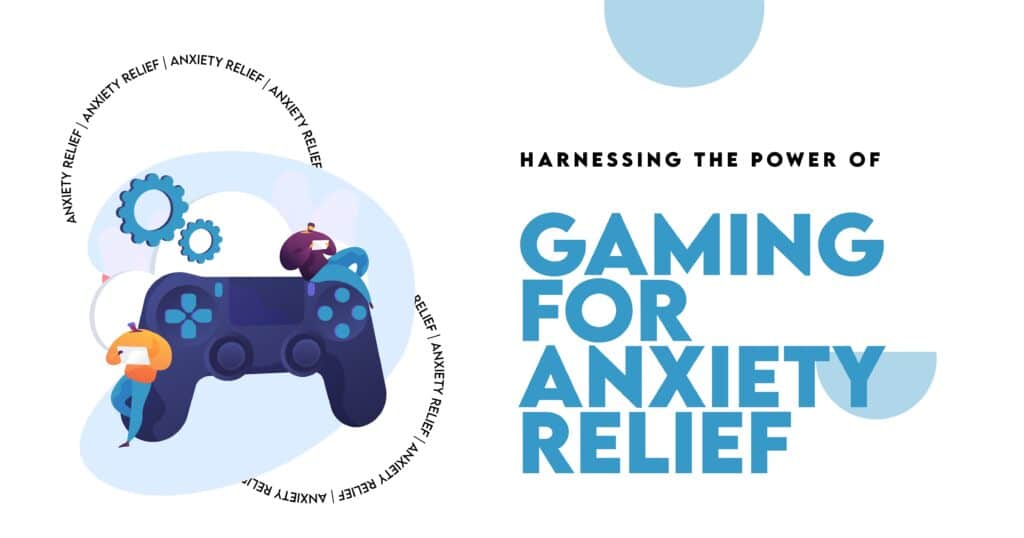Medical research indicates that millions of people worldwide suffer from mental health issues despite persistent misconceptions about therapy approaches. Data from the National Institute of Mental Health reveals that 1 out of 5 U.S. adults suffers from a mental illness that includes conditions like anxiety and depression, together with bipolar disorder and schizophrenia. One of the questions many people worry about is: Are mental disorders treatable?
Well, the simple answer to it is yes, but the healing potential of mental disorders depends entirely upon how strong a person’s will is and what kind of help they get.
Many individuals hesitate to find assistance since they are confused about whether mental conditions are treatable or not. Public misconceptions and incorrect beliefs surround the topic, making it difficult to understand the reality.
This article explains mental illness definitions and displays typical mental disorder symptoms alongside an extensive summary of current treatment choices. The guide provides information showing that recovery stands as a realistic option for anyone seeking answers or hope.
Mental Illness Definition – What Are Mental Disorders?
Any health condition that affects thinking processes, emotional reactions, and behavioral patterns is defined as a mental disorder. Anyone, regardless of their characteristics, can develop these conditions. Mental illness is also defined by distress and difficulties relating to social relationships and maintaining work and family situations, as outlined by the American Psychiatric Association.
Depression, anxiety disorders, bipolar disorder, schizophrenia, and PTSD constitute mental health disorders. The range of severity and time for manifestation differs from disorder to disorder, but these conditions prove curable with medical treatments. The beginning of recovery depends on grasping the correct definition of mental illness because it differs from common misconceptions about this condition.
Common Misconceptions About Mental Health Disorders
The growing mental health awareness has not eliminated the numerous myths about such disorders that obstruct people from seeking necessary support. Next, we will eliminate the most prevalent misunderstandings about mental health disorders.
Mental Illness Is a Sign of Weakness
People who experience mental illness do not demonstrate weakness in their condition. The medical condition functions similarly to standard physical illnesses.
People With Mental Disorders Are Dangerous
The majority of individuals who deal with mental health disorders show no aggression towards others, so they remain harmless.
You can Just Snap Out of it
You cannot dismiss mental illness as a simple attitude that vanishes by itself because regular treatment and expert assistance are usually necessary.
Only Adults Experience Mental Health Issues
Mental health disorders can affect young people between childhood and adolescence so they need suitable mental health services for their age group.
Therapy Doesn’t Work
Across the country, millions of people have learned to control and overcome mental illness when they receive proper treatment methods.
Medication Will Change Your Personality
Medicines serve to control symptoms effectively because they will not modify your identity.
Understanding the Symptoms of Mental Illness
Mental health disorders display themselves through numerous manifestations, which affect how someone feels, behaves, and thinks. Different mental health disorders produce either gradual or unexpected symptoms that affect each patient differently based on the diagnosis.
Most individuals dismiss behavioral symptoms without realizing their emotional distress origins or mistake them for stress or personality characteristics. Professional assistance should be sought if emotional distress creates problems with relationships and daily responsibilities at work, then self-care needs begin to affect functionality.
Emotional, Behavioral, and Cognitive Signs to Watch For
The following are symptoms that people face while having mental disorders.
Emotional Symptoms
- Persistent feelings of sadness, hopelessness, or emptiness
- Excessive mood swings, irritability, or anger
- Intense fear, anxiety, or panic without an obvious cause
- Feelings of guilt, worthlessness, or helplessness
Behavioral Symptoms
- Withdrawal from social activities or relationships
- Sudden changes in sleep or eating patterns
- Decline in personal hygiene or self-care
- Increased use of substances like alcohol or drugs
- Engaging in risky or self-destructive behavior
Cognitive Symptoms
- Difficulty concentrating, remembering, or making decisions
- Racing thoughts or an inability to slow down mental activity
- Paranoia, suspiciousness, or irrational fears
- Detachment from reality (delusions or hallucinations in severe cases)
Most Common Mental Health Disorders and Their Treatment Options
Each mental health condition shows different symptoms, its distinctive treatment needs, and separate challenge characteristics. Every mental illness differentiates itself when experienced by different people, so we need to understand the diversity behind these disorders. Knowing about the standard mental health issues enables us to build an environment that accepts and supports people who need different types of treatment.
Many mental health disorders require unique treatment since patients may present with anxiety, depression, or schizophrenia, which demand specialized care. Various health interventions, including therapy along with medication use and modifications to lifestyle and support network involvement, help patients to recover from mental illnesses. Every person should know about all treatment choices because this knowledge enables both help-seeking behavior and deepens understanding of recovery methods.
A Look at the Mental Disorders List and Approaches to Care
Treatment approaches depend on symptom severity as well as both diagnosis type and personal requirements. The table below shows mental disorders list, and their typical treatments:
| Mental Health Disorder | Common Symptoms | Treatment Options |
| Depression | Persistent sadness, fatigue, loss of interest, hopelessness | Psychotherapy (CBT), antidepressants, lifestyle changes |
| Anxiety Disorders | Excessive worry, restlessness, panic attacks | CBT, anti-anxiety medication, relaxation techniques |
| Bipolar Disorder | Extreme mood swings between mania and depression | Mood stabilizers, psychotherapy, and medication management |
| Schizophrenia | Hallucinations, delusions, disorganized thinking | Antipsychotic meds, psychosocial therapy, and supported living |
| Eating Disorders | Obsession with weight, eating, or body image | Nutritional counseling, CBT, inpatient/residential treatment |
The Importance of Early Intervention in Treating Mental Disorders
The success rate for managing mental health disorders depends heavily on implementing treatment programs in their initial stages. The successful management of a mental health issue and prevention of disease escalation requires immediate symptom treatment and medical intervention. A person gains better treatment results and reduced long-term life impact through the early discovery of mental disorders, which enables quicker mental disorder treatment.
Early intervention in mental health treatment leads to diminished healthcare complications because patients typically avoid both prolonged disabilities and extreme symptom occurrences and dual disorders involving substance abuse or chronic physical diseases. Quick intervention allows individuals to reach emotional stability and better manage their daily lives while stopping their mental disorder from dominating their existence.
Professional evaluations coupled with therapy and potential medication prescriptions as the main components in early intervention. The approach requires constructing support systems and learning stress management techniques while developing strategies to handle the long-term aspects of the condition. The time a person gets treatment immediately enables them to take charge of their mental health.
Treatment Methods: Therapy, Medication, and Holistic Care
There’s no one specific solution for the treatment of everyone’s mental disorders, as everyone has different mental stability and approaches. However, different practitioners combine different techniques for the treatments, such as therapy, medicine, and supportive care, as each of them addresses different aspects of one’s life and wellbeing.
The main treatment approaches are as follows:
Therapy
- Cognitive Behavioral Therapy (CBT)
- Dialectical Behavior Therapy (DBT)
- Exposure Therapy
- Psychodynamic Therapy
Medication
- Antidepressants
- Anti-anxiety Medications
- Mood Stabilizers
- Antipsychotic Medications
Holistic Care
- Mindfulness
- Exercise and Physical Activity
- Nutritional Support
- Support Groups
Need Mental Health Support? Contact La Jolla Mental Health Today
The healing process begins when one takes the first step towards help. La Jolla Mental Health exists to assist anyone who feels overwhelmed with getting help. We have professionals who deliver compassionate care while creating personalized treatment strategies to assist you in achieving mental restoration.
La Jolla Mental Health provides confidential care together with expert direction and a roadmap for obtaining enhanced mental health stability, so contact them straightaway.
FAQs
Are all mental disorders treatable?
Most mental disorders do not have a complete cure, but different treatments lead to strong management outcomes. The proper conjunction of therapeutic interventions with medications and lifestyle adaptations permits people to handle their symptoms while maintaining a satisfying existence.
What are the most common symptoms of mental illness?
The following are the common symptoms of mental illness:
- Feelings of sadness
- Excessive worry
- Changes in sleep or appetite
- Difficulty in maintaining focus
- Withdrawal from social activities
- Behavioral changes, such as self-harm
How do I know if I or someone else needs professional help?
Individuals who experience mental illness symptoms beyond several weeks or months should seek professional assistance when those symptoms create problems with daily activities, interpersonal relationships, or workplace productivity. The emergence of suicidal thoughts, extreme mood swings, and stress management problems signals the need for professional help.
What are the main treatment options for mental health disorders?
Therapy, medication, and holistic methods, including exercise, mindfulness, and dietary support, are the primary therapeutic choices.
Can therapy alone help, or is medication always required?
Treatment through therapy provides beneficial outcomes for several patients who seek help for anxiety disorders and mild depression cases. For severe depression and schizophrenia, medical treatment needs to be combined with therapy to properly control symptoms.








